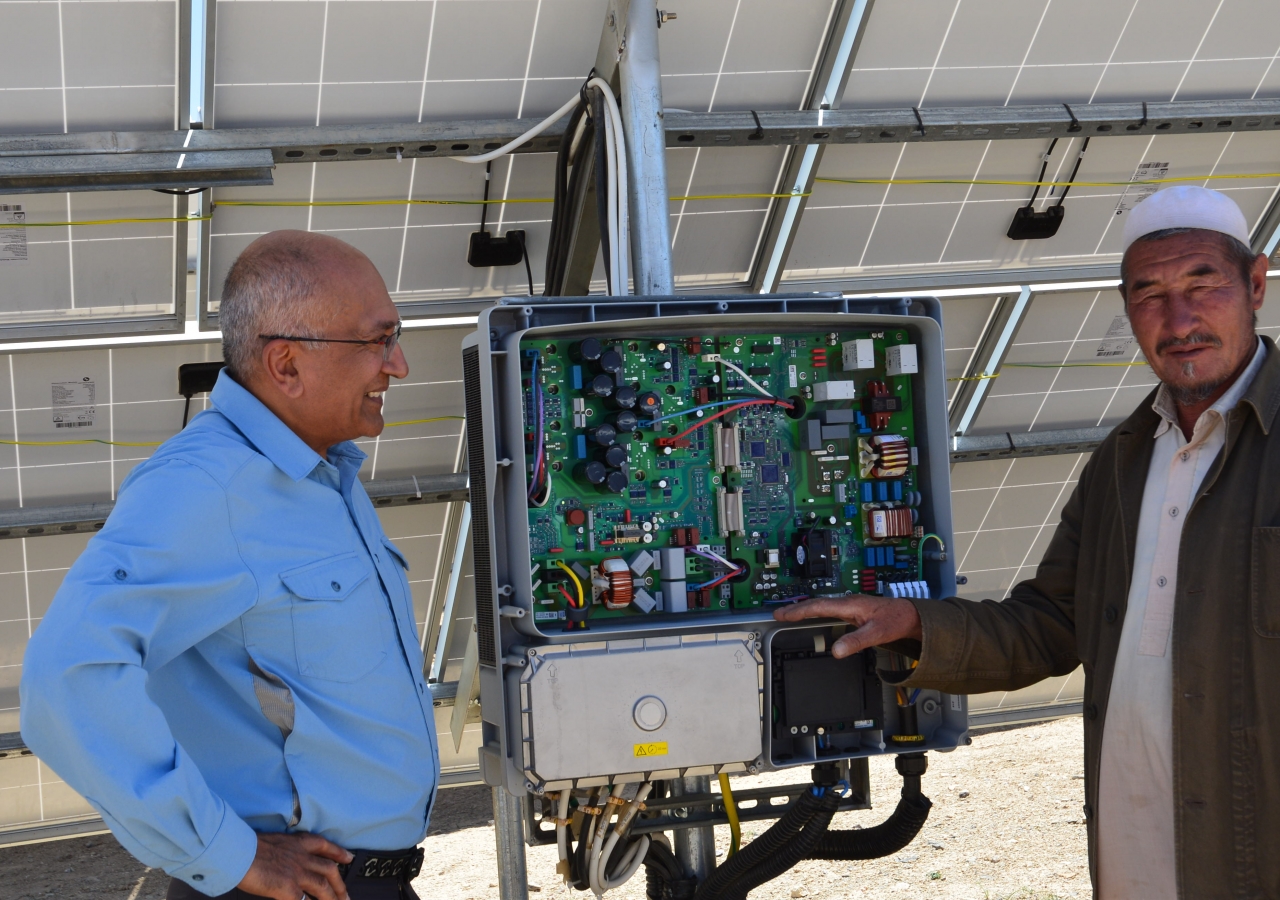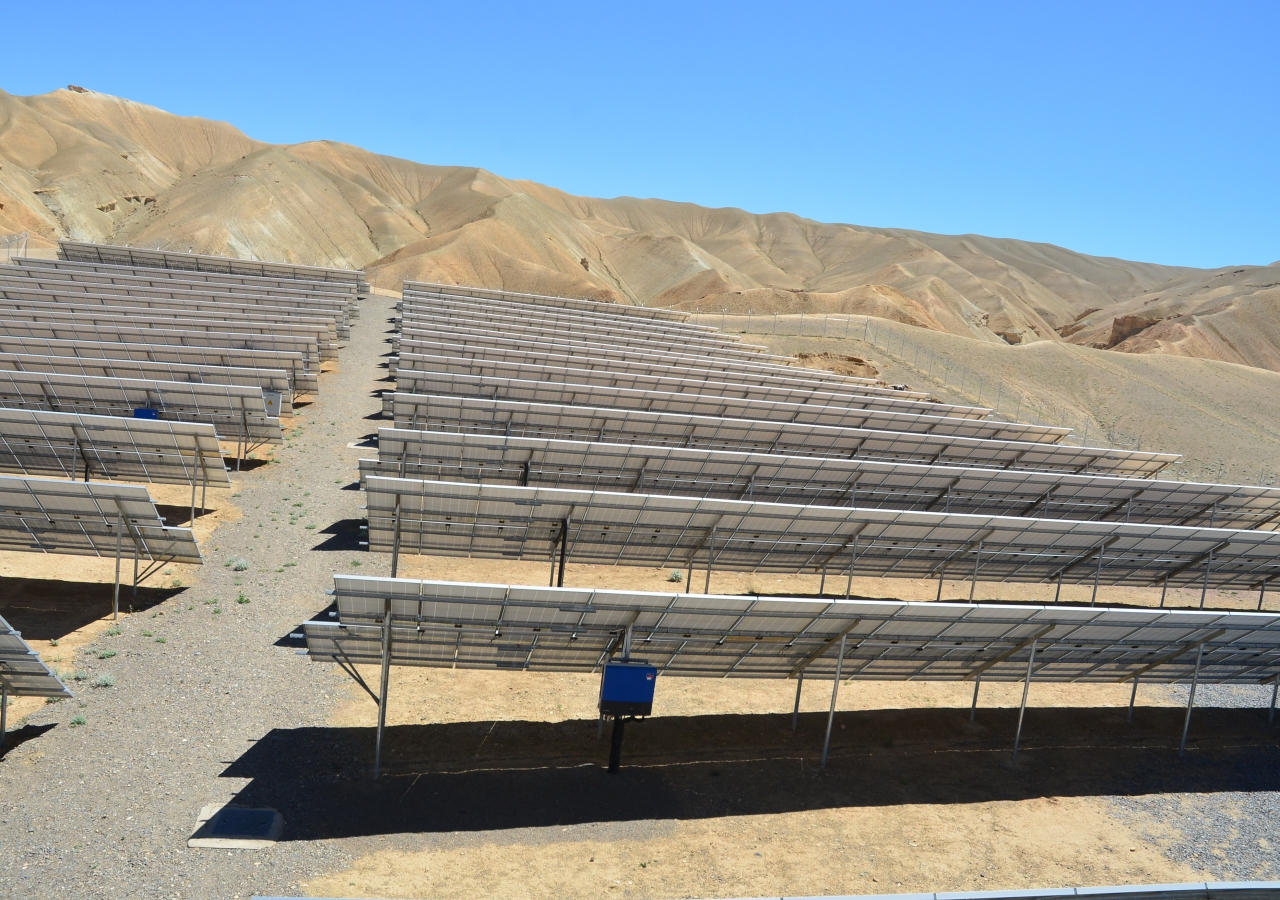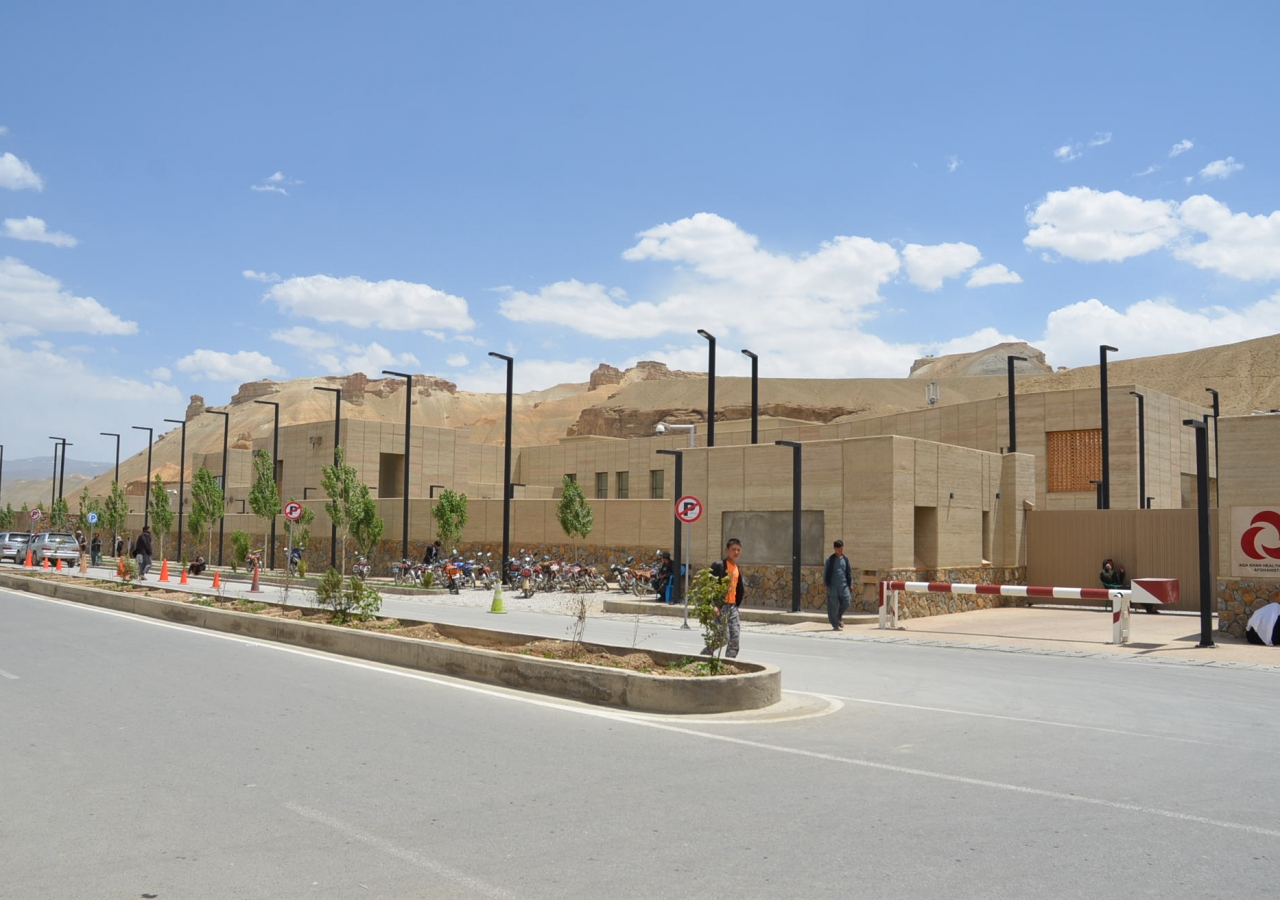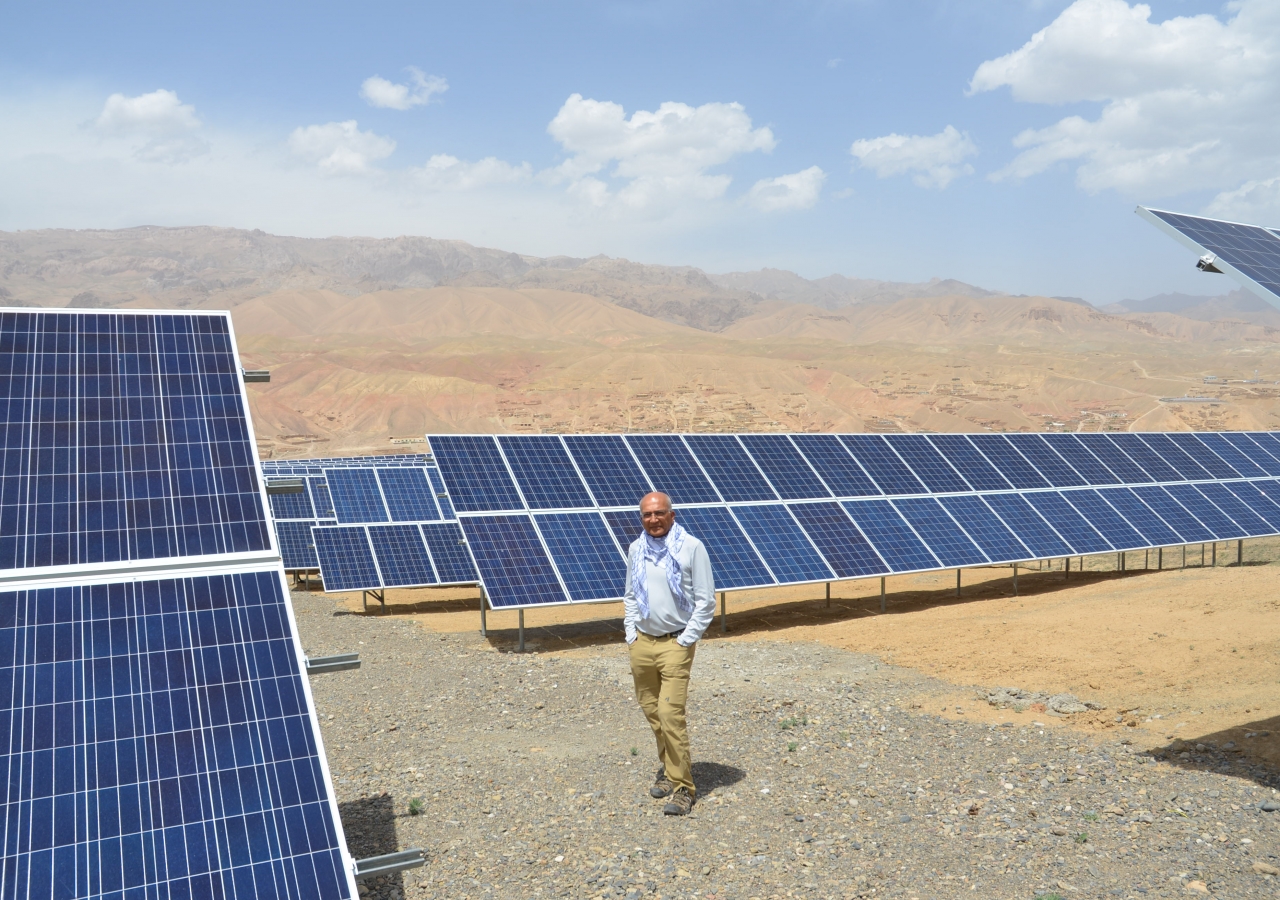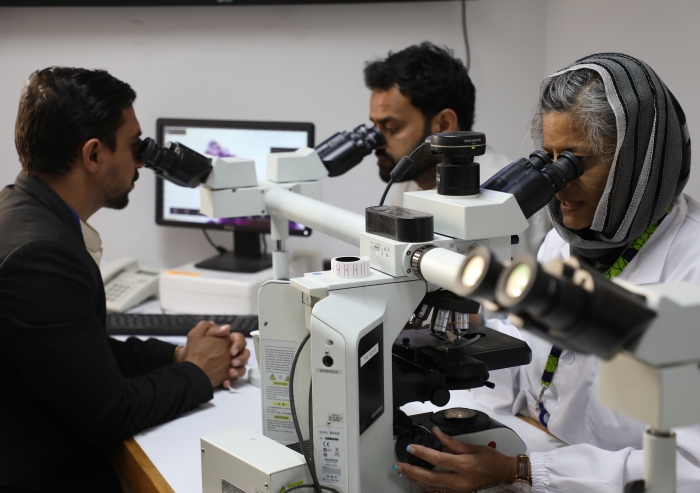The Bamyan Hospital, built by the Aga Khan Planning and Building Services (AKPBS) and managed by Aga Khan Health Services (AKHS), is a 141-bed facility with state-of-the-art equipment and ISO-9001:2008 certification for international standards in quality tertiary healthcare.
Faruq’s role as a Solar Technical Advisor was to work with a local contractor on the Hospital’s Solar Photo Voltaic (PV) plant — the largest of its kind in the Aga Khan Development Network — a hybrid system consisting of 1,653 solar panels and 576 storage batteries. The solar panels fully power the facility throughout the day, and excess power is stored in batteries that take over and power the Hospital after sundown. Less than 25 per cent of the hospital’s energy is now dependent on standby diesel, which is very costly in Bamyan. This results in substantial savings in fuel costs and leaves a much smaller carbon footprint.
"One of the most important outcomes was that we proved that the technology works really well in Afghanistan. The country has a climate that is very conducive to solar power, with ample sunlight, moderate temperatures and little pollution,” described Faruq, regarding a key enabler in the region for this technology.
Faruq’s role was to review and build upon the design to improve and optimise the system, guide the contractor through various phases of work, inspect construction, advise on how to address any deficiencies, and perform final system acceptance testing.
While his assignment required a couple of trips to the site to meet contractors and evaluate the completed project, he monitors the plant remotely from Edmonton, Canada, and provides technical assistance and guidance on a daily basis.
He brings with him over 40 years of experience in the power generation industry, building power plants, substations and power transmission lines on some of the largest solar energy projects in Canada, including a 1,000+ acre solar plant in Sault Ste. Marie in Ontario. “But the experience I gained working in Afghanistan has increased my appreciation for some of the challenges in other parts of the world, and I am able to apply that to my own professional development in Alberta now.”
Faruq has been invited by AKHS to review up to 35 more potential projects for solar power suitability in Afghanistan, Northern Pakistan, Central Asia and East Africa, including the exploration of hydro power using micro turbines in Faizabad. He is looking forward to continuing to contribute his expertise and enhance his ongoing learning through these fulfilling TKN engagements. AKPBS is immensely grateful to Faruq for his exceptional volunteer contribution on this trailblazing project.

